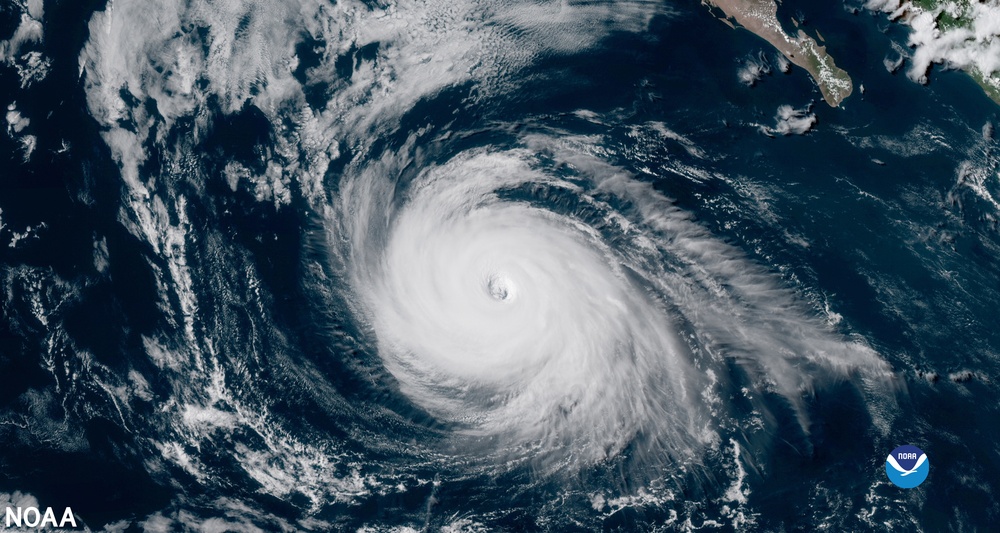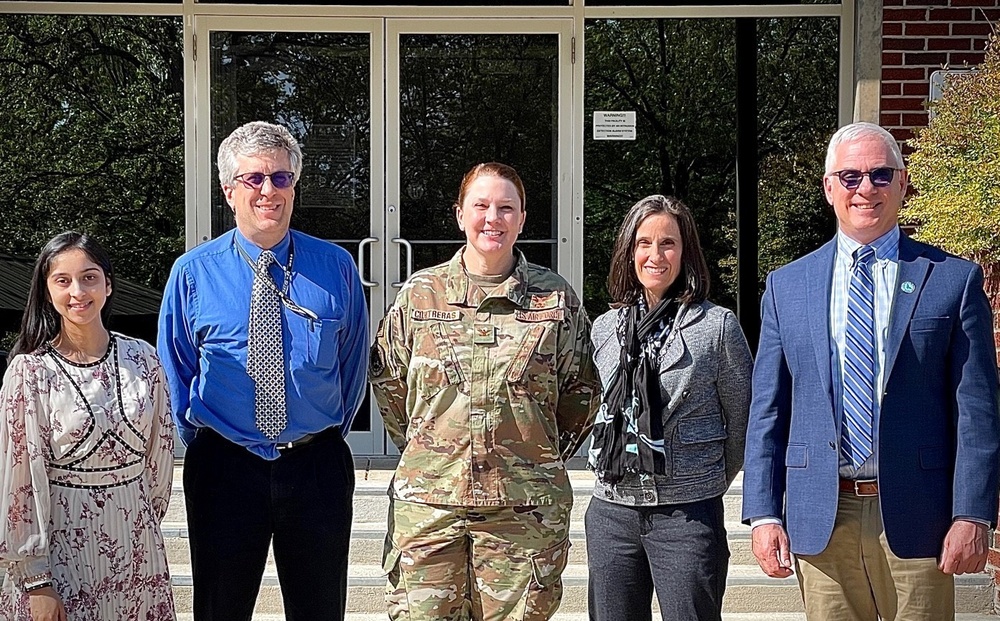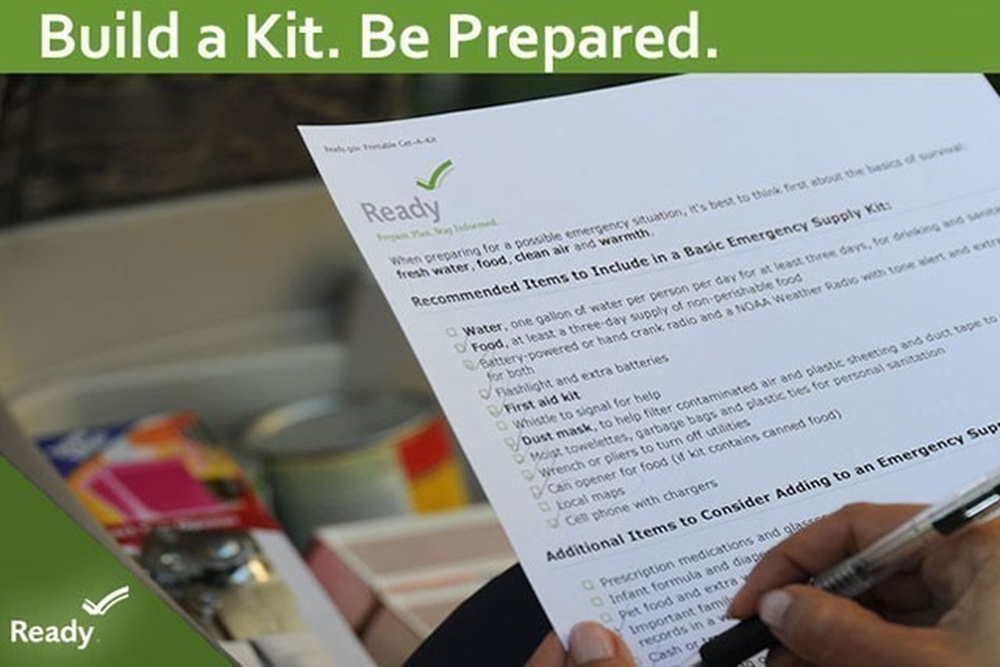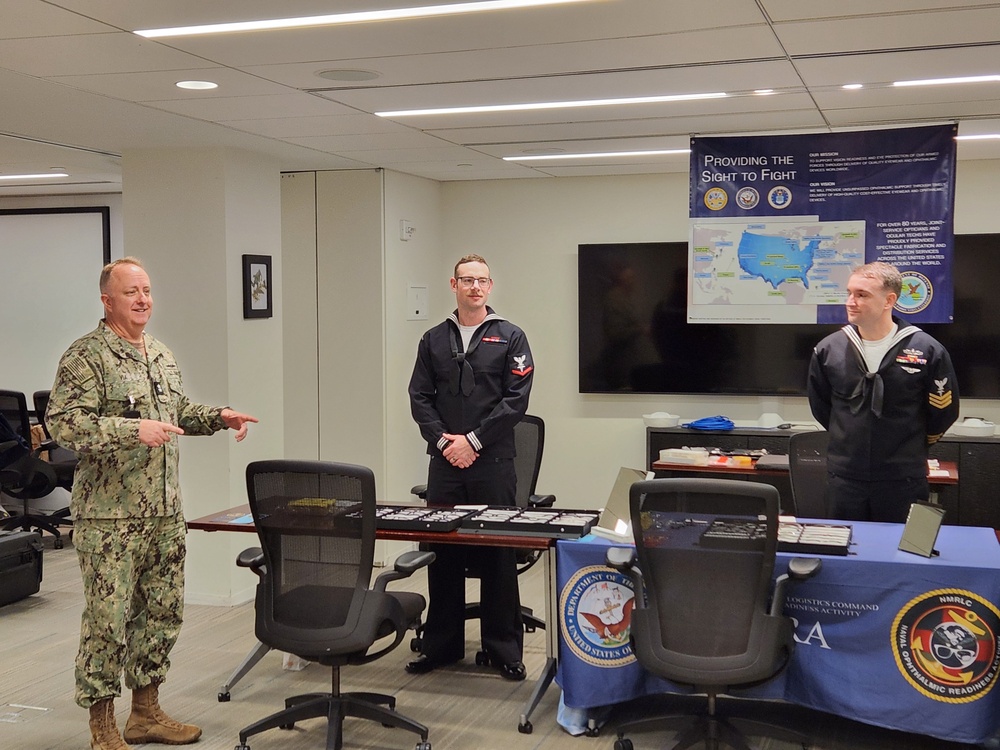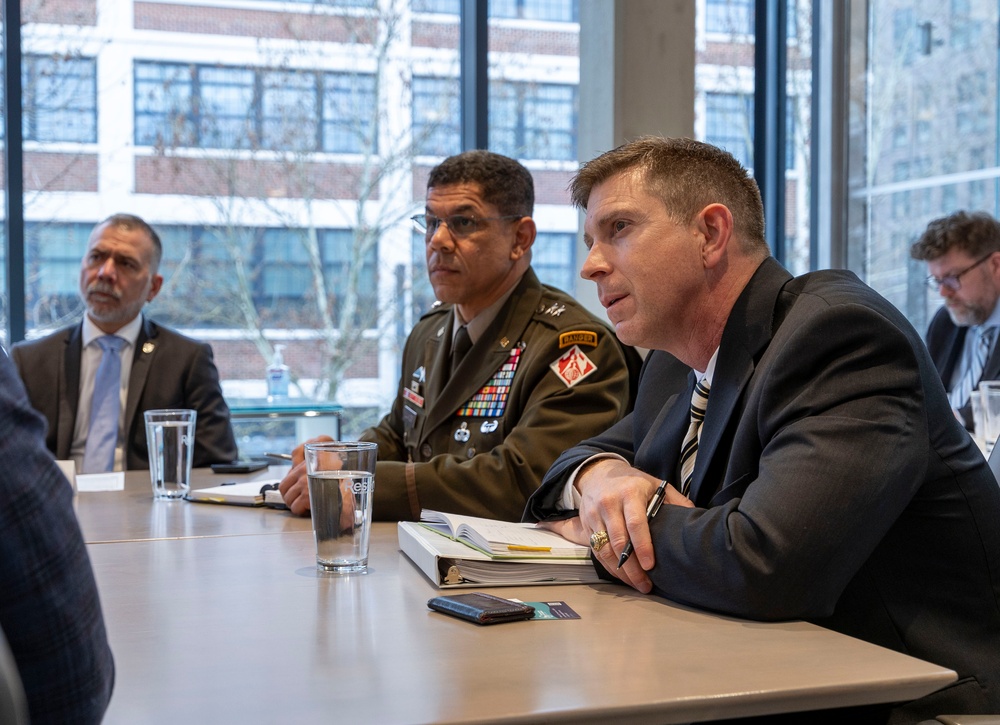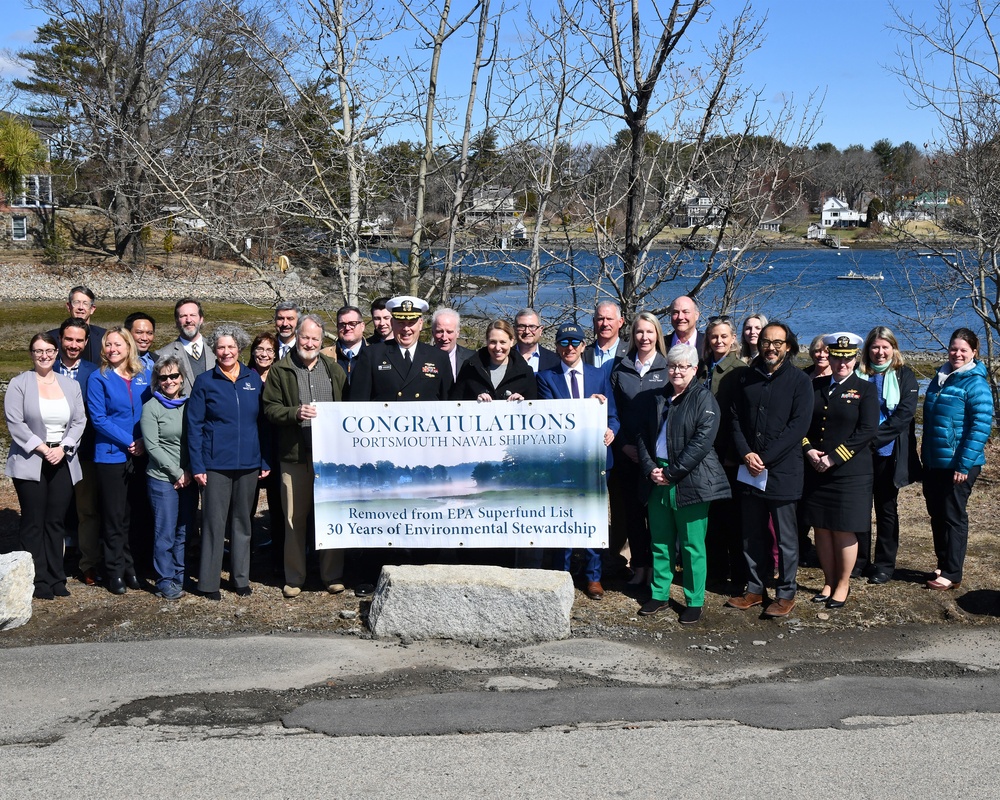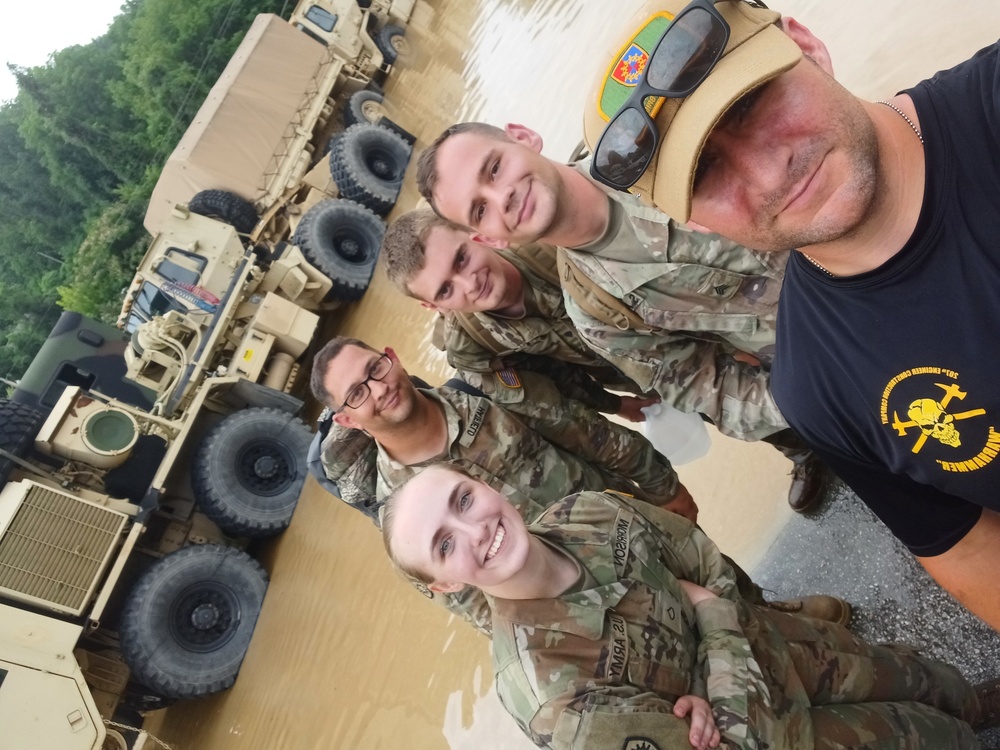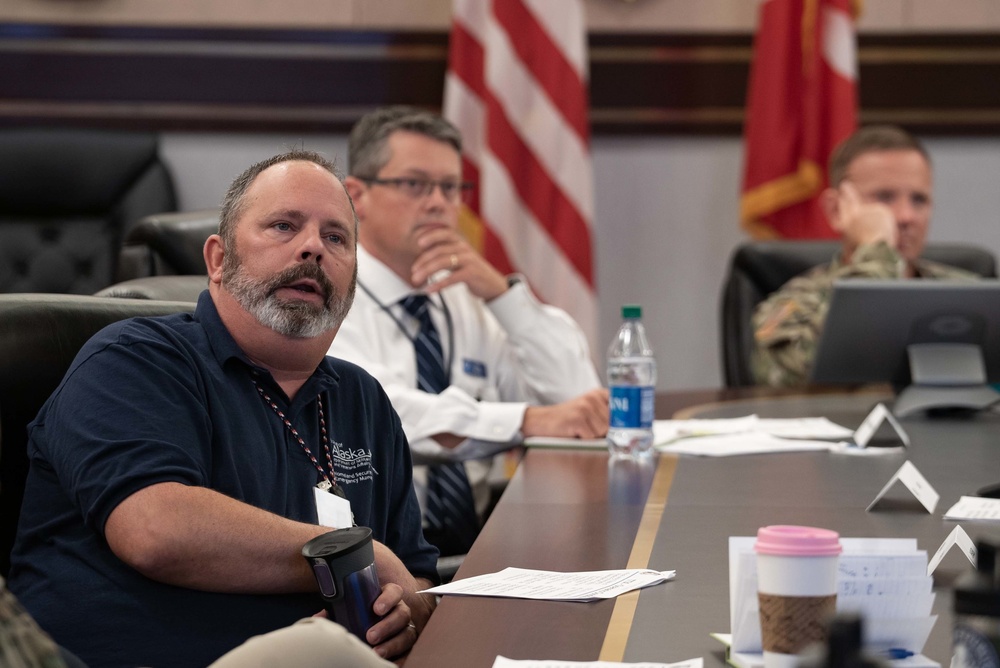By Sgt. 1st Class Benjamin Crane, Kentucky National Guard Public Affairs Office
JACKSON, Ky. – Of the many residents in Eastern Kentucky affected by the historic flooding, some were Soldiers in the 207th Engineer Company working out of the field maintenance shop (FMS) at the Kentucky National Guard armory.
After the shop flooded last year, the Soldiers put together a plan to make sure the equipment didn’t get damaged assuming the creek’s water level would only rise to the same level as it had previously.
One of those Soldiers was Army Sgt. Ronnie Banks, a maintenance section leader with the 207th Engineer Company. He’s a full-time technician as a production controller at FMS 6, which sits on the North Fork Kentucky River, whose waters rose to over 43 feet on July 28.
Banks is originally from Harlan County but recently moved to Jackson in May with his wife Holly and their two children.
When he left his home Thursday morning, there wasn’t water on any of the roads leading to the armory from his house. When the flooding happened last year, a few of the roads had standing water on them, so he wasn’t even thinking it would be an issue for his home or work.
“I first got here (the armory), the water level was maybe three or four feet off the edge of the fence line, and we thought we had lots of time,” said Banks. “So, we just we started working, moving equipment and executing our plan.”
With the rains slowing down after a full night of rain before, the Soldiers at the armory didn’t think anything of the water levels as they continued moving equipment.
“It’s crazy how fast everything happened,” he continued. “Mr. Hudson was tracking the water level projections on his NOAA app and saw that it was projected to rise less than 39 feet, which was about what had happened last year.”
Warrant Officer 1, Jacob Hudson was the incoming supervisor for the FMS shop who wasn’t even officially in the position until Aug. 1. Hudson had spent the night before at the armory since he feared that the river would rise a lot earlier.
Hudson, Banks, Sgt. 1st Class Chadd Robertson and some additional Soldiers who had come over from the Richmond CSMS to help move equipment said they continued doing what they could to move what they could until they realized the water was going to continue to rise higher than projected and they needed to get out of there.
“We were having to wade through waist deep water in the shop as we were still trying to get stuff out,” said Banks. “We were throwing anything we could save in totes to pack out of there.”
With totes in hand, the group gathered what they could and started to make their way to the parking lot which sits about five feet higher than the shop was. As they exited, they made a line and had to push their way out of the door because the water in front of the door was holding it back.
It was by that time the water had reached the road that runs in front of the armory, essentially blocking them from getting out with their vehicles. Cell service had gone down, leaving them without a way to communicate with anyone outside their local vicinity.
As Banks worked, he prayed that his family would be safe since he wasn’t there with them.
“I’m just praying and trusting God to take care of us and everybody else involved just kept praying the whole time,” he said.
After a Soldier with service was able to get a few texts out, they found out the gas station across from Banks’ house was under water and that’s when he knew that his house was probably in trouble.
“I knew if the Go Time station was underwater, my house was underwater,” said Banks. “I just prayed again that the Lord would protect my family and make sure that they’re alive and safe. I trusted that he was going to take care of them and knew they were in good hands. I just had this feeling of peace really come over me about it.”
With a supernatural peace, Banks continued on till the call came for them to get out of the armory.
Meanwhile at Banks’ home, his wife had gotten the children out of the house, as well as their cousin who was in town visiting, up on a hill behind their house where a fellow National Guardsmen who lived nearby, was able to rescue them in his kayak and get them all to a safe dry spot.
The Soldiers, who were there on orders, took a set of railroad tracks to another side of the town where they were picked up by the highway department and taken to safety.
At the armory, Banks and the two other Soldiers sat and watched the water fill their workplace.
“We were thinking that since it was getting dark, we were going to need some kind of shelter,” said Banks. “We had saw a church that had an overhang and thought about crashing on the porch because it was covered but before we could do that, Robertson’s friend reached us and invited us to their place since they had power still.”
And that’s where the three men stayed until later the next morning when they could go back to the armory and see the damage to their shop.
According to Banks, there was nine and a half feet of water that filled the FMS shop and 18 inches of water that had reached the armory. The high waters had also reached the parking lot and the vehicles parked at the armory got waterlogged and ruined, Banks’ truck being one of them.
With his truck a total loss, fellow Soldier Sgt. 1st Class Adam Spencer, husband of Staff Sgt. Deborah Spencer, the one who picked up his wife and two children and brought them back to her house to stay, loaned him his truck.
Finally, with a way to get back home, he was able to see the damage about a day and a half later.
Five and a half feet of water had filled the first floor of his home, destroying furniture, carpet, walls, flooring, food, and boxes of items they had yet to unpack from the move. The waters displaced furniture all around the house making it difficult for Banks to even enter the home.
“Our refrigerator was blocking our back door and a couch was blocking
the front door so we had to climb in over the furniture to get into the
house,” said Banks.
With all the damage to his house, Banks has been able to find many resources and funds to help him rebuild.
He has received help from USA Cares which he heard about from Sgt. 1st Class Adam Spencer. USA Cares is a non-profit organization founded in 2003 in Radcliff, Kentucky, that exists to help bear the burdens of service by providing military families with financial and advocacy support in their time of need.
“We’ve received $3,000 in Lowes gift cards from USA Cares,” said Banks. “It will definitely help me get started faster with the rebuild process getting the drywall, insulation and flooring.”
As the task of clearing out their house is daunting, Banks and his wife find the silver lining to the whole situation as they had talked about remodeling since they moved in three months ago and now will get the opportunity to do so.
He also feels blessed to have some many people reach out and help his family in the past month.
“It means a lot to know that there is help out there”, said Banks. “I’m kind of reluctant to accept help sometimes but I really do need the help and it’s going to help us rebuild so I’m thankful for it.”
While they rebuild, they are living in a camper given to them by a church ministry out of Indiana called Frontline Ministries. The camper is sitting in the Spencer family yard since they had already been staying there at their home.
He also wanted to be able to thank the many others who were involved personally since the flooding last month.
“I’d like to thank Larry Thompson (brother of Staff Sgt. Joanna Thompson in the unit) who was the neighbor that got my wife and kids out of the house.”
Mike and Cynthia Feltner, the family who housed us the night of the flood.
The Spencers for taking my family in and letting us stay on their land in our camper
The Spencer’s dad who helped me do a lot of work to the house as well as Sgt. 1st Class Adam Spencer and Staff Sgt. Kevin Barrett.
Samaritan’s Purse who stepped in and helped us a lot.
The lady with a real estate agency in Lexington who bought $500 worth of lumber to help fix my subfloor and floor joists.
My friends from my previous active duty units that donated money to a GoFundMe account set up by my brother to help us out.
Several members of my family that have donated clothes, money, gift cards, and food to us.
My family member who is currently active duty who took leave and drove
up from Fort Bragg to bring us supplies.
The family in Alabama that drove up with donations from their church, twice already.
My church, Jackson Church of God that has helped us with food, supplies and helped me set up dehumidifiers to get my house ready for drywall.
They have also been giving supplies to anyone affected by the flood, despite having been flooded as well.
My commander, Capt. Matthew Peterson, and his wife who brought clothes, shoes, and toys for my kids, which really helped them. They call him Captain America now.
And the We Care for America foundation with assistance from Kimberly Adkins, the Soldier and Family Readiness Specialist.”
“I pray that the Lord blesses them exceedingly and abundantly beyond what they can imagine, just like He is doing for us,” he said.
| Date Taken: |
09.01.2022 |
| Date Posted: |
09.01.2022 19:02 |
| Story ID: |
428555 |
| Location: |
KY, US |
| Web Views: |
143 |
| Downloads: |
1 |
PUBLIC DOMAIN
This work, Kentucky Engineer Soldier takes advantage of flood recovery resources available to aid in cleanup., by SFC Benjamin Crane, identified by DVIDS, must comply with the restrictions shown on https://www.dvidshub.net/about/copyright.

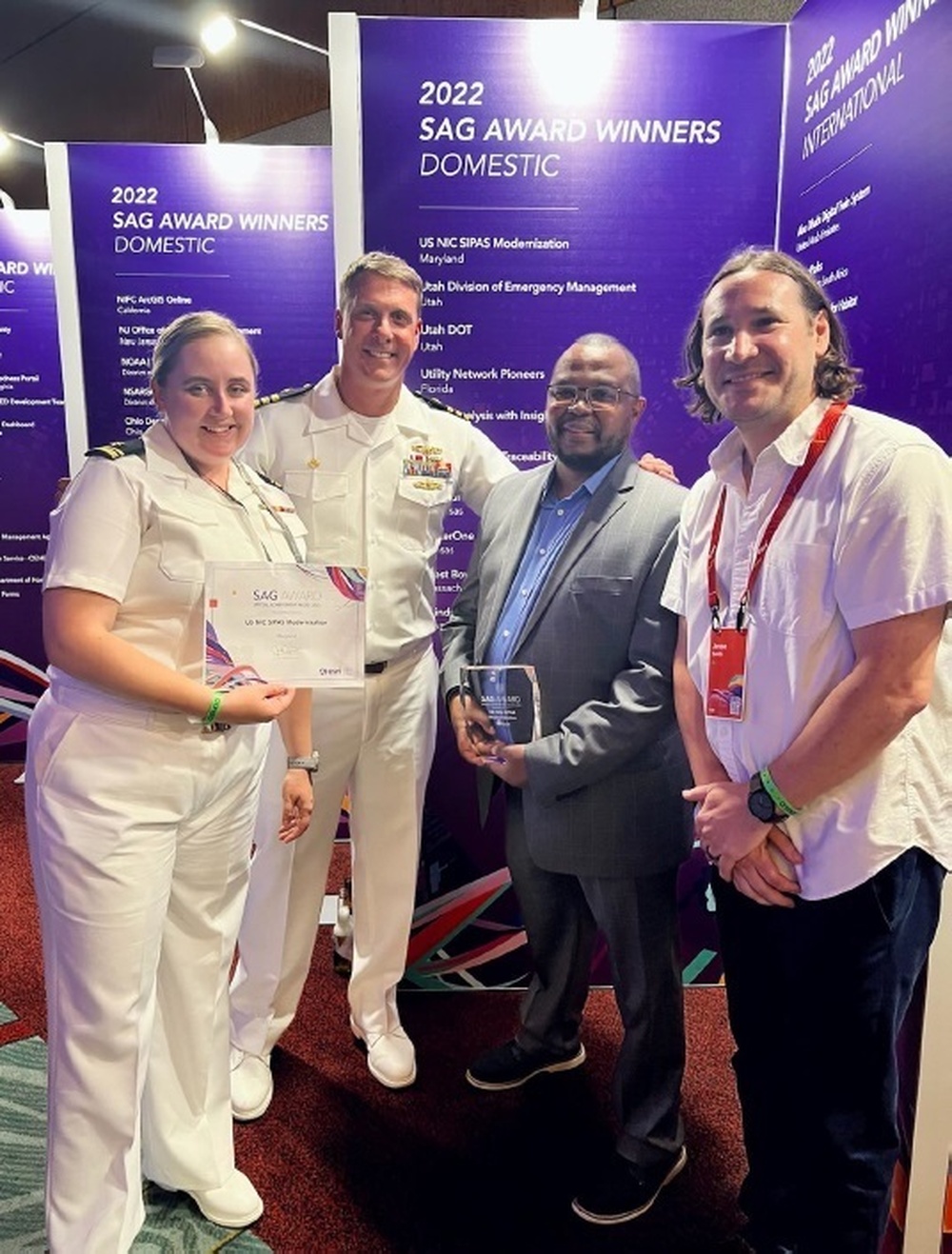
 Private Internet Access gives you unparalleled access to thousands
of next-gen servers in over 83 countries and each US state. Your
VPN experience will always be fast, smooth, and reliable.
Private Internet Access gives you unparalleled access to thousands
of next-gen servers in over 83 countries and each US state. Your
VPN experience will always be fast, smooth, and reliable.
